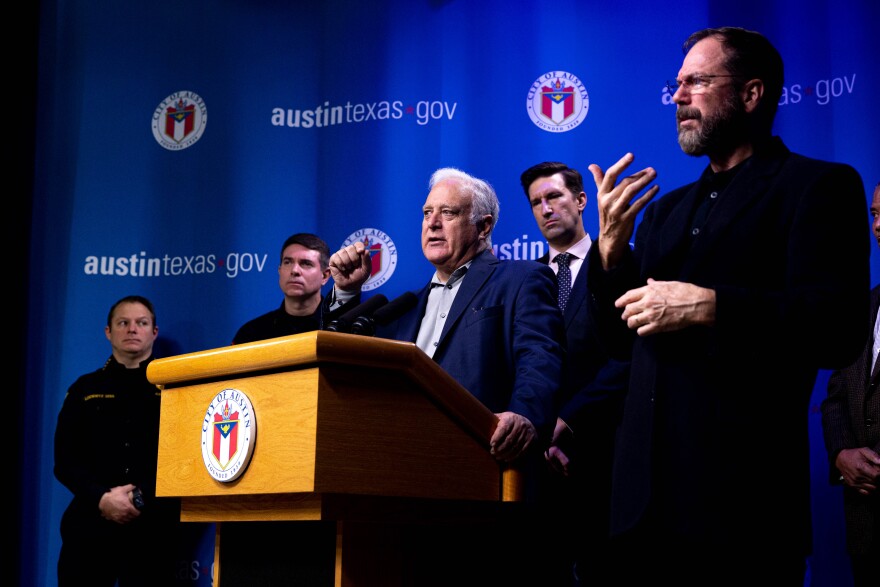Over the summer, Austin’s mayor amassed nearly 700 pages of emails sent and received from his personal address, all in his role as an elected official. Kirk Watson used his private email to sign off on statements to the press, to share budgetary items and to form a committee that will help hire a new city manager.
A spokesperson for the mayor told KUT that Watson does not like Outlook, the email program city staff use. He has instead opted to conduct some mayoral business on a personal Gmail account.
“Some people communicate with me on non-City of Austin accounts and I sometimes use non-City accounts,” Watson said via the spokesperson.
But in doing so, the mayor appears to be violating city policy.
In 2011, Austin adopted a rule requiring city employees, including the mayor and council members, to use their city email addresses to do their jobs. The policy says that if employees must use a personal email address for work, they need to forward those emails to their public account.
The move came after the news outlet The Austin Bulldog revealed council members had potentially violated state law by holding private meetings to discuss city business. As the county opened a criminal investigation into council members, the city set about adopting rules to increase transparency. That included a policy regarding the use of personal communication devices.
In a statement, Watson said Monday the city adopted its policy at a time when state law was unclear about whether personal emails used by government officials to do their jobs should be made public.
That changed in 2019 with legislation authored by Watson himself. Senate Bill 944 makes clear that personal emails used by government officials to do their jobs cannot be kept secret.
“[T]he reason you know about these [personal email] communications is because they were preserved and sent to you,” Watson told KUT via a spokesperson. He did not address city policy, which states employees should not use a personal email address for city business.
Watson's staff count on him to forward messages from his private account that deal with city business and he deems public.
Attorney Bill Aleshire, who worked on the 2011 case against council members that led to current city policy, questioned the practice of relying on an elected official to decide what should be made public from emails exchanged through a private account.
“The problem is instead of putting all of his emails into the server to start with and not using a personal account, he has exactly the same dilemma that Hillary [Clinton] had,” Aleshire told KUT, referring to Clinton’s use of a personal email server to conduct government business. “She was the one who had to go through it and decide what she thought was public business versus personal and it creates a lack of trust.”
According to city rules, an employee who violates the email policy could face disciplinary action.









